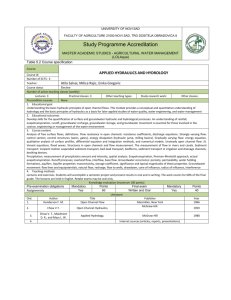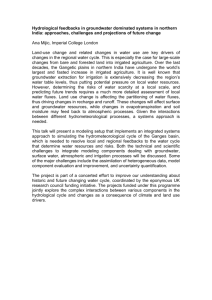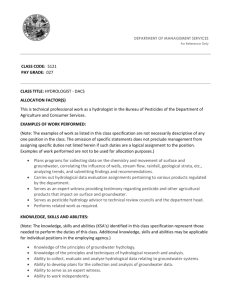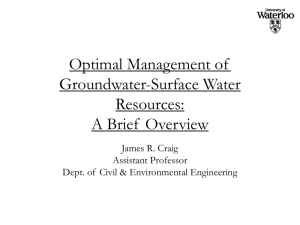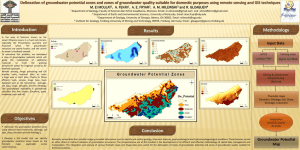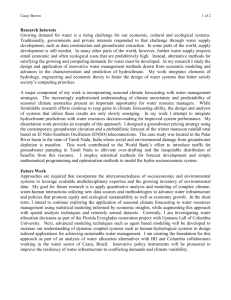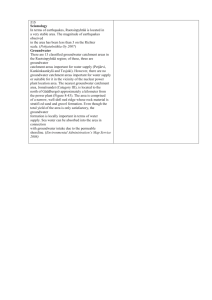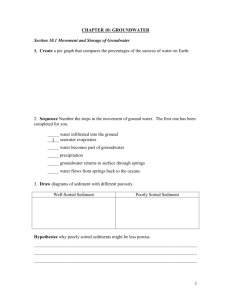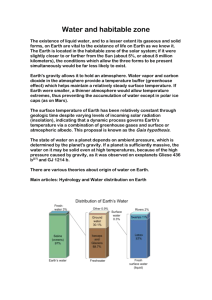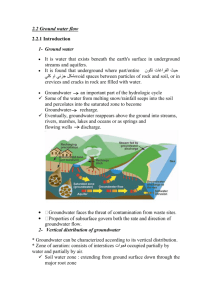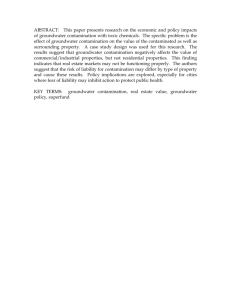Principles of Groundwater Flow
advertisement
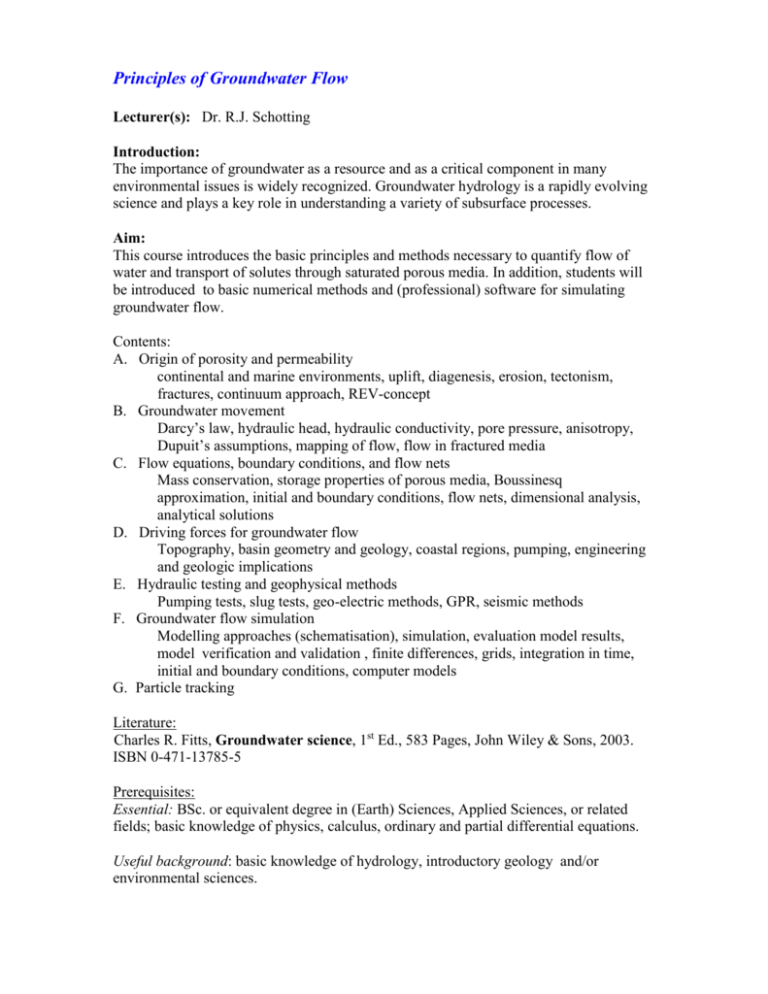
Principles of Groundwater Flow Lecturer(s): Dr. R.J. Schotting Introduction: The importance of groundwater as a resource and as a critical component in many environmental issues is widely recognized. Groundwater hydrology is a rapidly evolving science and plays a key role in understanding a variety of subsurface processes. Aim: This course introduces the basic principles and methods necessary to quantify flow of water and transport of solutes through saturated porous media. In addition, students will be introduced to basic numerical methods and (professional) software for simulating groundwater flow. Contents: A. Origin of porosity and permeability continental and marine environments, uplift, diagenesis, erosion, tectonism, fractures, continuum approach, REV-concept B. Groundwater movement Darcy’s law, hydraulic head, hydraulic conductivity, pore pressure, anisotropy, Dupuit’s assumptions, mapping of flow, flow in fractured media C. Flow equations, boundary conditions, and flow nets Mass conservation, storage properties of porous media, Boussinesq approximation, initial and boundary conditions, flow nets, dimensional analysis, analytical solutions D. Driving forces for groundwater flow Topography, basin geometry and geology, coastal regions, pumping, engineering and geologic implications E. Hydraulic testing and geophysical methods Pumping tests, slug tests, geo-electric methods, GPR, seismic methods F. Groundwater flow simulation Modelling approaches (schematisation), simulation, evaluation model results, model verification and validation , finite differences, grids, integration in time, initial and boundary conditions, computer models G. Particle tracking Literature: Charles R. Fitts, Groundwater science, 1st Ed., 583 Pages, John Wiley & Sons, 2003. ISBN 0-471-13785-5 Prerequisites: Essential: BSc. or equivalent degree in (Earth) Sciences, Applied Sciences, or related fields; basic knowledge of physics, calculus, ordinary and partial differential equations. Useful background: basic knowledge of hydrology, introductory geology and/or environmental sciences.
